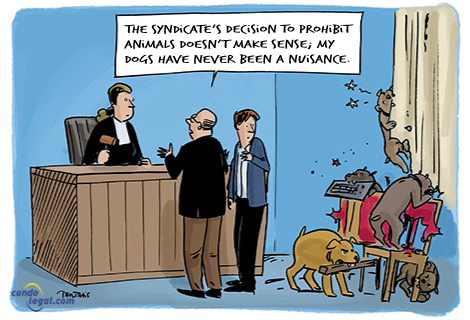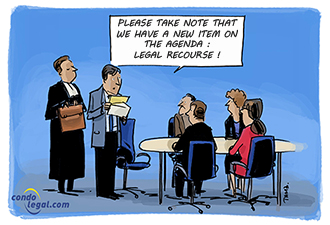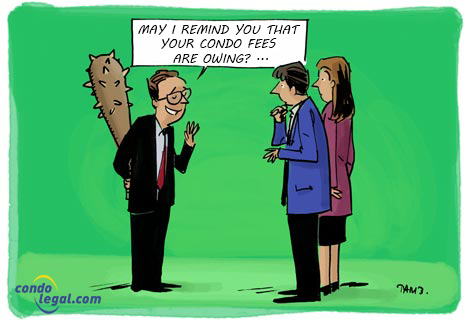27 Articles

The Syndicate's obligation to maintain the common areas, and more particularly the common portions for restricted use, is a subject that has given rise to much debate since the 1994 reform. This obligation, although clearly defined, has often been a source of conflict and misunderstanding. Directors often find themselves in an awkward position when co-owners require major work to be carried out. This work may involve a seriously damaged balcony or, as was the case…...

At a meeting of the board of directors, directors must not make any decision that is biased, or with the intention of harming the co-owners (or any of them) or disregarding their rights. In case of defect, the co-owners (or a director) can now take legal proceedings to oppose decisions taken by the Board of directors. Article 1086.2 of the Civil Code of Quebec, which came into force on January 10, 2020, allows the court to set aside or,…...

The co-owners have a legal proceeding when they oppose decisions taken by the meeting of the co-owners. They generally seek to contest decisions they consider unjustified. In order to promote the stability of the decisions made at the meeting of co-owners, the legislator allows such recourse only in certain circumstances. Thus, article 1103 of the Civil Code of Québec provides that any co-owner may apply to the court to annul or, exceptionally, to amend a…...

Initiating legal proceedings against a syndicate of co-owners is a measure of last resort, after having unsuccessfully explored private dispute prevention and resolution process. This path requires careful preparation and a thorough knowledge of the rules of law. This fact sheet is designed to guide those who are considering going to court to resolve their dispute with a syndicate of co-owners, by highlighting the legal basis and typical situations that can lead to such legal…...

The failure to pay general or special common expenses (condo fees) is one of the most contentious co-ownership’s issues. It is the duty of the board of directors of the syndicate of co-owners to collect them, unless this task has been delegated to the condo manager. When a co-owner's contributions have been in arrears for more than three months, the law provides, ex officio, that he automatically loses his right to vote at the general meetings…...

Any co-owner may have the relative value of their fraction, as well as the allocation of common expenses (condo fees), revised according to certain conditions and formalities. To do so, it is necessary to proceed with an appeal to revise the relative value of the fractions. Furthermore, a co-owner may wish to modify the relative value of their fraction. Therefore, they will have to request the prior consent of the Board of directors or the general…...

Sometimes, co-owners of contiguous private portions wish to modify the boundaries of their private portions. For example, if one of the two co-owners wishes to enlarge their apartment by incorporating part of the adjacent unit, specific procedures are necessary. Similarly, when a co-owner wishes to merge two units they own into one, important questions arise, particularly concerning the integration of common portions and the necessary steps to carry out such work. This practical guide covers…...
